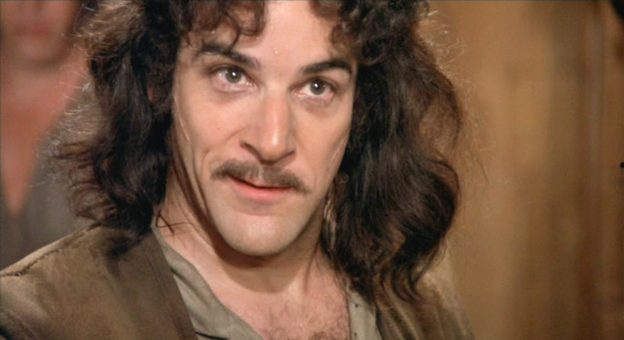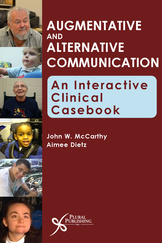I reflected on two movies I watched with my children over the summer as I prepared for Graduate Orientation this year. I realized that these movies actually framed, from my perspective, a preparation for the mindset required for excelling in graduate school. Over the past several years I have been trying to encourage graduate students to shift their perspective from the kinds of strategies that helped them to be successful in their undergraduate program, to what would allow them to be successful in graduate school. This year I tried the movie approach. Here is what I thought.
The two movies I drew from are Willy Wonka and the Chocolate Factory (the 1971 version with Gene Wilder) and The Princess Bride. I selected a quote from each movie to focus on.
QUOTE 1:
Willy Wonka: And Charlie, don’t forget what happened to the man who suddenly got everything he’d ever wished for.
Charlie: What happened?
Willy Wonka: He lived happily ever after.
In starting graduate school particularly after confirming acceptance into a program, there could be this sentiment. All the hard work has paid off. You have wanted something for so long and have worked so intensely to make it happen. There has to be a moment or even longer to savor that feeling. To a certain extent this part is true. You should be congratulated for an incredible job well done. On the other hand, that isn’t all there is. I don’t know where the point is where one lives happily ever after (or even if in terms of personal development that is something to reach), but I will say that graduate school is not the point of happily ever after. I believe the situation is much more like in quote 2
QUOTE 2:
Inigo Montoya: Is very strange. I have been in the revenge business so long, now that it’s over, I don’t know what to do with the rest of my life.
Westley: Have you ever considered piracy? You’d make a wonderful Dread Pirate Roberts.
My recommendation to students is to live by this second quote in graduate school. There are several reasons why this is apt. First, there is a recognition that you have been working toward a single goal for a very long time. You have prepared in a certain way and it has been successful for you. Much like Inigo you worked and worked and finally attained your goal. There is the excitement Willy Wonka noted, but what about the plan?
Inigo cannot continue to apply his revenge strategies for the rest of his life. Similarly, you cannot continue to apply your “getting into graduate school strategies” in graduate school. This means if you have worked with a singular goal get the highest possible grades every course and have taken on multiple extra curricular activities to gain new experiences and distinguish yourself among a large field of applicants or just to improve yourself and learn more about the field you may need to consider a change. Like Inigo you need to consider “piracy” because you really will make a wonderful Dread Pirate Roberts. Ok. Maybe you don’t want to sail the high seas, get scurvy, and pursue treasure. However, the Dread Pirate Roberts was a singular presence. He was also the captain. Maybe consider what it means to be a pirate captain. I did a search for qualities of a good pirate captain and came across this site:
I am so grateful for the qualities that were offered there. Thank you Captain Python!
The key factors listed were: Discipline; Being Human; Taking Risks; Tactician/Decision Maker; Courage and setting an Example; and Cooperating with Your Officers.
Discipline: OK, you don’t need to make people walk the plank, but what about self-discipline? This is an incredibly important quality for your success in graduate school. Sure you need to “buckle down” and work hard. I’m not talking about that kind of discipline. For a pirate captain you need to balance between too much discipline where you risk a mutiny and too little discipline where you aren’t respected or listened to. If you are too rigid in dealing with your self and your instructors and supervisors, you will not be successful. Mutiny on this scale is not something to be toyed with. Similarly, if you don’t demonstrate enough discipline you won’t be successful. You won’t be taken seriously and others may question your commitment. Program directors definitely don’t want to think that of their large pool of applicants, they filled a spot with someone who doesn’t seem to want to be there.
Being Human: In this case, it is about knowing your limits. The pirate captain weighs input from other experts. The captain who always thinking he/she knows it all can’t possibly know it all. If your goal in graduate school is to know it all, you won’t be successful. A mark of wisdom is recognizing your limits, but knowing that you can find answers if you seek them out.
Taking Risks: Sometimes I meet undergraduate students who don’t want to take risks in courses because they fear for their GPA or they don’t want to try something very new and different because it could take the focus away from their program. This is not a strategy for graduate school. I find it is embracing diversity and other areas of knowledge that fosters creative and the kind of integration that you need to do in clinical situations.
Tactician/Decision Maker: Making good decisions has to do with managing resources and understanding the pros and cons associated with different courses of action. In graduate school there are fewer right/wrong answers and more answers that carry good and not so good consequences. A tactician weighs those things quickly and anticipates consequences. Sometimes you even end up tactically needing to make a decision that costs in in the short term, but pays off in the long run. If you focus only on points in a class, but don’t actually grasp larger concepts, you haven’t won.
Courage and Setting and Example: Here is an easy carryover example. In my undergraduate classes if I offer an open ended question to the class, “Who knows the difference between synthesized and digitized speech?” I might get downward stares from a room with the occasional hand up. The idea again is being conservative. There isn’t a big gain in answering even if you are right, but there is a perceived loss if you answer and get it wrong. In graduate school be courageous. Raise your hand. Ask questions. Put your ideas out there.
Cooperating with your Officers: There is a zero sum game mentality that can happen in undergraduate programs. If there are only a finite set of spots to get into graduate school then if someone else succeeds, you lose. I’m not sure that is 100% accurate, but there certainly is a hefty amount of competitiveness that gets spread in programs. You may not be sincerely happy for someone else’s success and instead focus on what their success means for your standing. In graduate school, it is so critical to be strong with your classmates. You aren’t competing against each other anymore. You are all on the same ship and you sail or sink together.
In my experience the qualities above are in so many of the graduate students I interact with on a daily basis but they tend to be manifested differentially. Some students embrace and cultivate these qualities and I believe they are the ones who become truly outstanding clinicians. There are several I would proudly bestow the title of Pirate Captain on. Are you ready to be a pirate captain? You’d make a wonderful one!
Incidentally, the @ouCSD Staff gave me this the next day…





